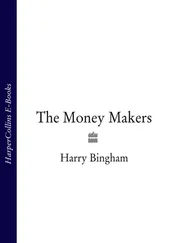‘Worried? You should be, comrade. In this city, disappearance is a bad thing. It’s not the right thing from a political perspective. If a comrade worker vanished that would be one thing, but for a member of the propertied classes – well! That’s a serious business.’
The old woman seemed caught between two emotions. The first and strongest one was fear and anger that Misha had brought her this problem. But the other emotion was delight at the scope for gossip and interference. When her chatter turned to the latter subject, her voice became suddenly italicised, full of leering innuendo.
‘Oh yes, and you will need to inform the Bureau of Labour. If the disappeared ones don’t turn up soon, then you’d do well to send their papers along to the foodstuff distribution committee. You wouldn’t want to be found profiting from excess distributions – not someone in your position. Not even if you can think of other young people who might enjoy the food. Oh yes, I’m sure you have ideas on how to use the living space . Perhaps you already have done. Eh? That would be something, wouldn’t it, comrade? Your mother missing, maybe killed for all you know, and only one thought on your mind.’
They burst away from the old woman as soon as they could. Going upstairs, they hugged each other tightly. The future seemed suddenly very close, unknown and dangerous. Almost without speaking, by common assent, they stripped silently off and made love, naked and in bed together for the very first time.
The decrees were published. Internal exile for the ‘propertied classes’, an old Tsarist tool turned to new uses by the Bolsheviks.
Misha was relocated, but not far. The Petrograd railway authorities didn’t want to lose Misha’s services, so he was shifted just a hundred miles to Petrozavodsk, on the line north towards Murmansk. Misha was employed as a railway engineer there as part of a small team of four, one of whom was also an ex-bourgeois like himself. The job was pleasant, his fellow workers positively cordial. Meantime, the old lawyer Kamenev had passed on greetings from Doctor Pakkinen in Helsinki.
Misha felt a fierce kind of joy at the news. His mother was safe. His brother was safe. He had done his duty to his father and his family.
Best of all, it wasn’t hard for Tonya to come out to see him, often once a week. She’d come sometimes on her own, sometimes with Pavel, and the three of them would go out, looking for mushrooms in the woods, or swimming or boating on Lake Onezhskoye. They got on well. Misha took a liking to Pavel and taught the boy metalwork and how to bait a fishing line. Pavel still hero-worshipped Rodyon, but seemed to have a place in his affections for Misha too.
Then, one late November afternoon, Tonya was in the yard below her apartment. The family’s fuel allocation had just arrived and she wanted to get the logs upstairs before they were stolen. She had just taken one load up and had her arms full with another, when she observed, in the growing gloom, somebody bending over the pile and helping themselves to as much as they could carry.
Tonya threw a log at the stooping figure.
‘Hey! Get out of there!’
The figure straightened.
‘Well, comrade, that’s not very friendly.’
It was Misha.
Tonya dropped her logs, and ran over to him, apologising and, in the same breath, telling him that he shouldn’t have come here to Petrograd, it was too dangerous for him to break the terms of his exile.
‘Lensky, Lensky!’ he said, kissing her. ‘I’m here legally, or sort of. I’m here to pick up a new slide valve for one of our engines. The one they send us keeps getting stolen. I’m due back at midnight.’
Tonya’s emotions turned at once from worry to hospitality.
‘Good! Then come up! I didn’t know you were coming, or I’d have found some meat for you somehow. I’ve got a beef stock, though. I could make soup, and—’
Misha brushed away her words as if he were clearing snow from a woodpile.
‘I can’t stay. I told you. I’ve got to go and get this valve. But listen. There’s a hospital at Petrozavodsk. It’s small and not very good, but it needs staff. I’ve made friends with a doctor there – a real doctor, a proper old bourgeois like myself – and he can get you a position there as a nurse. Just three days a week, mind you. For the winter only. Pavel is old enough to take care of himself for that time.’
‘There’s Babba, too. I couldn’t…’
‘So get Pavel to pull his weight. He’s easily old enough and he only does so little because you let him. Or Rodyon. He’s always offered to do more.’
Other objections rose to Tonya’s lips, but they got no further. Tonya knew that she was seeing problems only because she was scared, because she didn’t believe in luck when it came, because she distrusted the world most of all when it seemed to promise something. But being with Misha changed things somewhat. His outlook was so different from her own, so boundlessly optimistic, that she couldn’t help but doubt her own first instincts.
He saw the struggle in her face and held her gently to him.
‘It’ll be all right. Just say yes. I’ll sort everything else out.’
She looked up at him – his earnest face, long and pale in the twilight. She nodded dumbly.
‘Yes? Is that a yes? Good for you, comrade Lensky. Good for you.’ He kissed her. ‘Listen. I mean it. I do need to go. The hospital will be in touch. It’s a Dr Zurabov. He’s nice.’
And with that he was gone. The yard was empty again and only the pile of logs at Tonya’s feet gave any sign that the conversation had happened. She picked up the fallen logs and began to carry them upstairs.
Just ten days passed, then Tonya was ordered in to see her hospital supervisor.
‘Bad news for you, Antonina Kirylovna,’ he said, tossing a paper at her. ‘Some awful hospital out in the sticks needs a nurse. They’ve requested you. Don’t know why. I’d say no if I could, but the request has come through Party channels. I can’t say no. It’s only three days a week, if that’s any—’
Tonya didn’t hear any more, but felt a surge of joy at the news. It was almost as though Misha’s magic had somehow found a way to penetrate the remorselessly grinding machinery of the state. Tonya made her arrangements and two days later she was in Petrozavodsk. The snow had already come up there, and lay like a clean white mantle over town and countryside alike. When she finished work at the hospital that evening, Misha was there to meet her. But he didn’t take her back to his room, a space so tiny there was barely enough space for one. Instead he took her out of town, three miles down a track to a little wooden hut on the edge of the forest.
‘It’s an old hunting lodge. Run down, but fine. No one uses it.’
‘Don’t we need to …? Shouldn’t we get authorisation?’
Misha stood up to his knees in the snow, bright-eyed and exultant. ‘Yes, comrade. You are right. You raise an important point.’ He opened his arms wide and said in a loud voice, ‘I claim this house on behalf of the ultra-bourgeois family Malevich.’ There was a low cliff not too far distant, and his voice bounced off the grey rocks in a series of echoes. He turned back to her with a widening grin. ‘To hell with comrade Lenin,’ he shouted. ‘To hell with the revolution. Long live the bourgeoisie!’
Tonya was shocked to begin with. Shocked, because she’d never heard anyone say anything so daring for months now – let alone shout it at the top of their voice. And shocked too, because she was torn. She knew that the revolution was riven with too many little men: driven by fear, anxiety, power, greed. But there were also the Rodyon Kornikovs: good, hard-working idealistic men, who had pledged their lives to the service of their fellow men. She wasn’t as quick as Misha to condemn the changes.
Читать дальше












